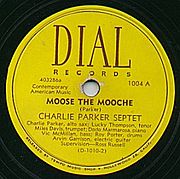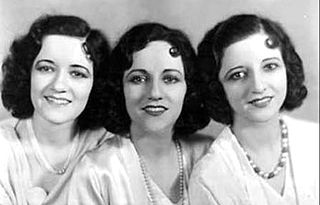
This is a list of notable events in music that took place in 1931.
A quintet is a group containing five members. It is commonly associated with musical groups, such as a string quintet, or a group of five singers, but can be applied to any situation where five similar or related objects are considered a single unit.
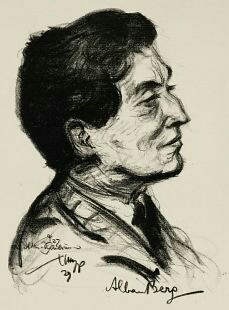
The Lyric Suite is a six-movement work for string quartet written by Alban Berg between 1925 and 1926 using methods derived from Arnold Schoenberg's twelve-tone technique. Though publicly dedicated to Alexander von Zemlinsky, the work has been shown to possess a "secret dedication" and to outline a "secret programme".

Claude Helffer was a French pianist.

René Leibowitz was a Polish and French composer, conductor, music theorist and teacher. He was historically significant in promoting the music of the Second Viennese School in Paris after the Second World War, and teaching a new generation of serialist composers.

Anahid Marguerite Ajemian was an American violinist of Armenian descent. Her career in contemporary music began from her desire to help young composers of her generation get their compositions performed. Additionally, she enjoyed performing the music of established contemporary composers. She included these composers with the traditional repertoire in her performances.
The Hollywood String Quartet (HSQ) was an American string quartet founded by violinist/conductor Felix Slatkin and his wife cellist Eleanor Aller. The Hollywood String Quartet is considered to be the first American-born and trained classical music chamber group to make an international impact, mainly through its landmark recordings. These recordings have long been regarded as among the most outstanding recorded performances of the string quartet repertoire.
The Kolisch Quartet was a string quartet musical ensemble founded in Vienna, originally as the New Vienna String Quartet for the performance of Schoenberg's works, and settling to the form in which it was later known. It had a worldwide reputation and made several recordings. The quartet disbanded in the United States during the early 1940s.

Jacques-Louis Monod was a French composer, pianist and conductor of 20th century and contemporary music, particularly in the advancement of the music of Charles Ives, Edgard Varèse, Arnold Schoenberg, Anton Webern and uptown music; and was active primarily in New York City and London during the second half of the twentieth century.
Confirmation is a bebop standard composed by saxophonist Charlie Parker in 1945. It is known as a challenging number due to its long, complex head and rapid chord changes, which feature an extended cycle of fifths. Jazz educator Dariusz Terefenko has pointed out the speed and intricacy of "Confirmation's" "harmonic rhythm", which he notes is typical of the bebop era.
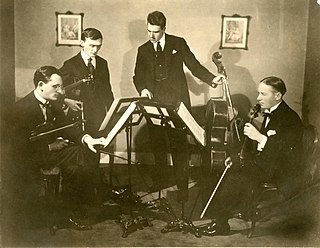
The London String Quartet was a string quartet founded in London in 1908 which remained one of the leading English chamber groups into the 1930s, and made several well-known recordings.
The Spencer Dyke Quartet was a string quartet active in England through the 1920s. It was formed in 1918 and its personnel remained unchanged until August 1927 when Bernard Shore became the violist and Tate Gilder the second violin. It is best remembered now for a series of pioneering chamber music recordings made for the National Gramophonic Society. At the time of the recordings, the Quartet members were Edwin Spencer Dyke, Edwin Quaife, Ernest Tomlinson (viola) and Bertie Patterson Parker cello. Bernard Shore played viola in the last two recordings only.

Charlie Parker on Dial: The Complete Sessions is a 1993 four-disc box set collecting jazz saxophonist and composer Charlie Parker's 1940s recordings for Dial Records. The box set, released by the English label Spotlite Records, assembled into a single package the multi-volume compilation albums the label had released by Spotlite on vinyl in the 1970s under the series title Charlie Parker on Dial. The box set has been critically well received. In 1996, a different box set collecting Parker's work with Dial was assembled by Jazz Classics and released as Complete Charlie Parker on Dial.
The Melos Ensemble is a group of musicians who started in 1950 in London to play chamber music in mixed instrumentation of string instruments, wind instruments and others. Benjamin Britten composed the chamber music for his War Requiem for the Melos Ensemble and conducted the group in the first performance in Coventry.

Yoshirō Vladimir Irino was a Japanese composer.
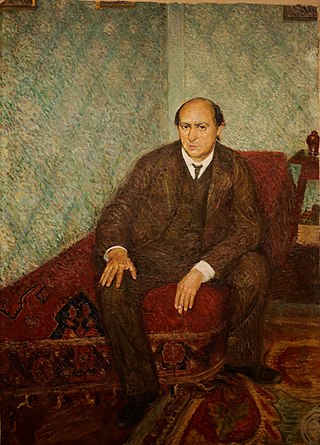
The Chamber Symphony No. 1 in E major, Op. 9 is a composition by Austrian composer Arnold Schoenberg.
The Fred Sherry String Quartet is an American classical string quartet.
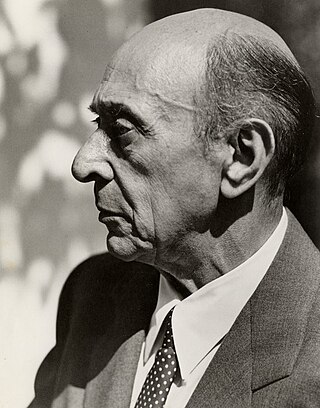
The Wind Quintet, Op. 26, is a chamber music composition by Arnold Schoenberg, composed in 1923–24. It is one of the earliest of Schoenberg's compositions to use twelve-tone technique.
André Marcel Charles Casanova was a French composer. He was an early disciple of René Leibowitz, a teacher and composer who maintained a strict adherence to the dodecaphonic musical theories of Arnold Schoenberg. Casanova later abandoned most of them in favour of a more classical style of composition. His published works, composed between 1944 and 1993, include orchestral, chamber and choral music, operas and songs.
Richard Hoffmann was an American composer, musicologist and educator. He served many years as a professor at Oberlin Conservatory of Music.
